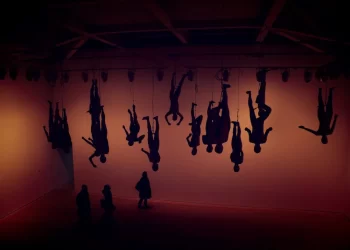As a 14-year-old it was beyond me as to why my father wanted my presence when Kailash — a drunkard rickshaw-puller employed for small chores at the hotel owned and run by my father for better part of his life — requested my father to talk his daughter into abandoning her abusive husband for good. Even today I can only speculate, for I never asked and he never told his reasons. But, if he wanted to educate me in the strange ways of the world, well, he did succeed I suppose.
Her husband lived in a nearby village and kept her with him only so long as her money lasted, after which he would beat her up and throw her out. And she would return back to her native town, start working in the houses as a maid, save money and go back to her husband with the savings. He would readily take her in, eat, drink and make merry till the savings lasted, after which she would again find herself on the street. The cycle continued for long. She had the option of leaving her husband and re-marrying without much fuss, for her husband wouldn’t have bothered. But that was one thing that never crossed her mind, nor did she even as much as entertain the suggestion.
Her father, Kailash, couldn’t bear to see his daughter suffer that miserably. And so he approached my father to talk some worldly sense into his daughter. My father was his last hope. And I was to witness the undoing of the hope.
In the early hours of the morning while the hotel waited for its first guests my father sat there hearing intently with a grim, plain face as Kailash retold the whole story while his daughter and I heard on. She was sitting on the floor, cross-legged while I stood with my arms crossed against my chest trying to look as serious as I could manage. Puzzled and startled, I heard the bizarre story for the first time, and I am sure my face must have displayed some funny colours, for my father cast a glance towards me and the hint of a smile appeared on his face momentarily though his light grey eyes remained still betraying no emotion at all.
Kailash had told the story in different words many times over to my father, but — as I would gradually come to know in due course — it was standard practice with my father to make the complaining party place the facts afresh so that the other side could agree or disagree to the presented facts. And if the complaining party changed the facts even minutely or watered down the tone for some reason, he drew certain adverse conclusions. “Those who can’t speak for themselves can’t speak for anyone, and must not be trusted to defend anything and anyone,” he once told me in his typically even tone.
After Kailash was done with retelling the story as passionately and as angrily as he ever did, my father looked at the girl and asked if it was all true. She nodded slowly.
I had thought she would say something to the effect that it was not all that bad, and her husband was not quite so evil. None of it. It was how it was. No defenses. No explanation.
“So, why do you continue with him when he hurts you so much all the time and every way? He does not even provide you with the basics,” my father pointed out without taking his eyes off her as he spoke each word dispassionately. He seemed to note the way each of his word was received and reacted to. The girl nodded sincerely all through, listening. But did not say anything.
He let a moment pass in silence. And then waited some more. Was it so difficult to understand really? It was elementary to my teenage, public-school mind. But there was a real world outside, which defied reason with dizzying regularity.
The pause stretched undisturbed. For what seemed quite a long while he did not speak. Neither did she. And then he decided to be more specific and a bit more pointed. “Why don’t you leave him?”
“Kya karoon babu ji. Ab pyar to usi se hai na,” she said very politely and a bit hesitantly, but very clearly and unambiguously. That took me by surprise. I couldn’t believe that I was hearing it said that simply in the real life. It was straight out of any number of Bollywood movies, but was delivered with such astounding ease and such perfect conviction that it took quite a long while to sink in. I looked at my father immediately expecting a surprised look, and met a steady gaze. He had simply nodded in understanding. Not a word. He got up and moved away with a smile. And the smile carried no enigma. It was the easy, pleased smile of understanding, which baffled me even further.
I and Kailash exchanged glances of incomprehension and puzzlement. We were on the same plane of confusion while my father and the girl existed on an altogether different planet of understanding. And I wanted to migrate. So, I walked towards my father. “Papa…?” He looked at me and his smile deepened while he said — and I can hear it as clearly in my ears even now — “Prem hamesha antim tarq hota hai.” (“Love is always the final argument.”) He was a man of few words, but at times he was a man of ‘very few’ words. It was such an occasion. He went away and got busy in the regular business of running his hotel leaving me perplexed. No further elaboration was on the way from his side, I knew. I was on my own with it.
Originally written and published as part of my monthly column — STREET LAWYER — in LAWYERS UPDATE [April 2013 Issue; Vol. XIX, Part 4].





